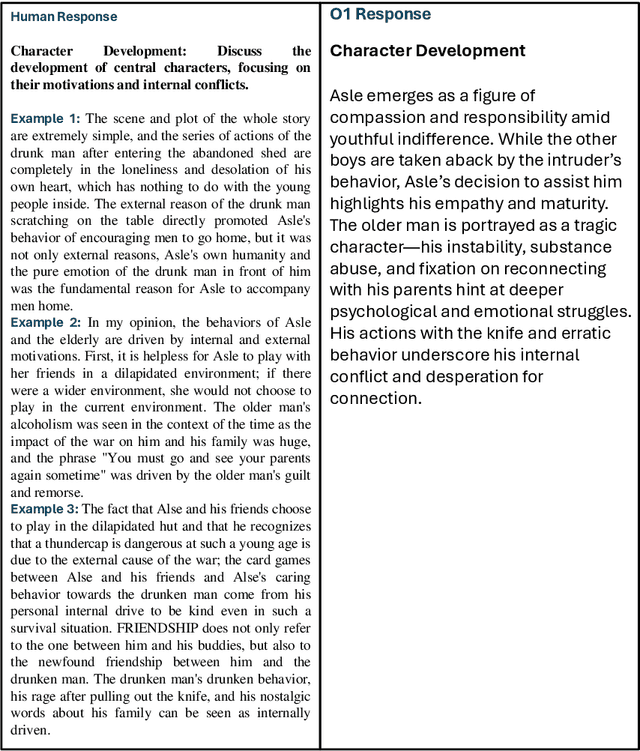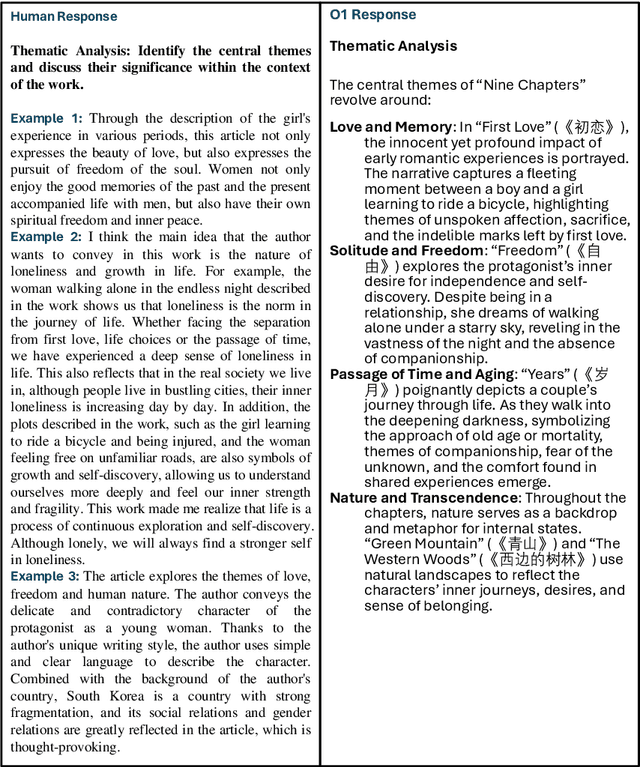Analyzing Nobel Prize Literature with Large Language Models
Paper and Code
Oct 22, 2024



This study examines the capabilities of advanced Large Language Models (LLMs), particularly the o1 model, in the context of literary analysis. The outputs of these models are compared directly to those produced by graduate-level human participants. By focusing on two Nobel Prize-winning short stories, 'Nine Chapters' by Han Kang, the 2024 laureate, and 'Friendship' by Jon Fosse, the 2023 laureate, the research explores the extent to which AI can engage with complex literary elements such as thematic analysis, intertextuality, cultural and historical contexts, linguistic and structural innovations, and character development. Given the Nobel Prize's prestige and its emphasis on cultural, historical, and linguistic richness, applying LLMs to these works provides a deeper understanding of both human and AI approaches to interpretation. The study uses qualitative and quantitative evaluations of coherence, creativity, and fidelity to the text, revealing the strengths and limitations of AI in tasks typically reserved for human expertise. While LLMs demonstrate strong analytical capabilities, particularly in structured tasks, they often fall short in emotional nuance and coherence, areas where human interpretation excels. This research underscores the potential for human-AI collaboration in the humanities, opening new opportunities in literary studies and beyond.
 Add to Chrome
Add to Chrome Add to Firefox
Add to Firefox Add to Edge
Add to Edge